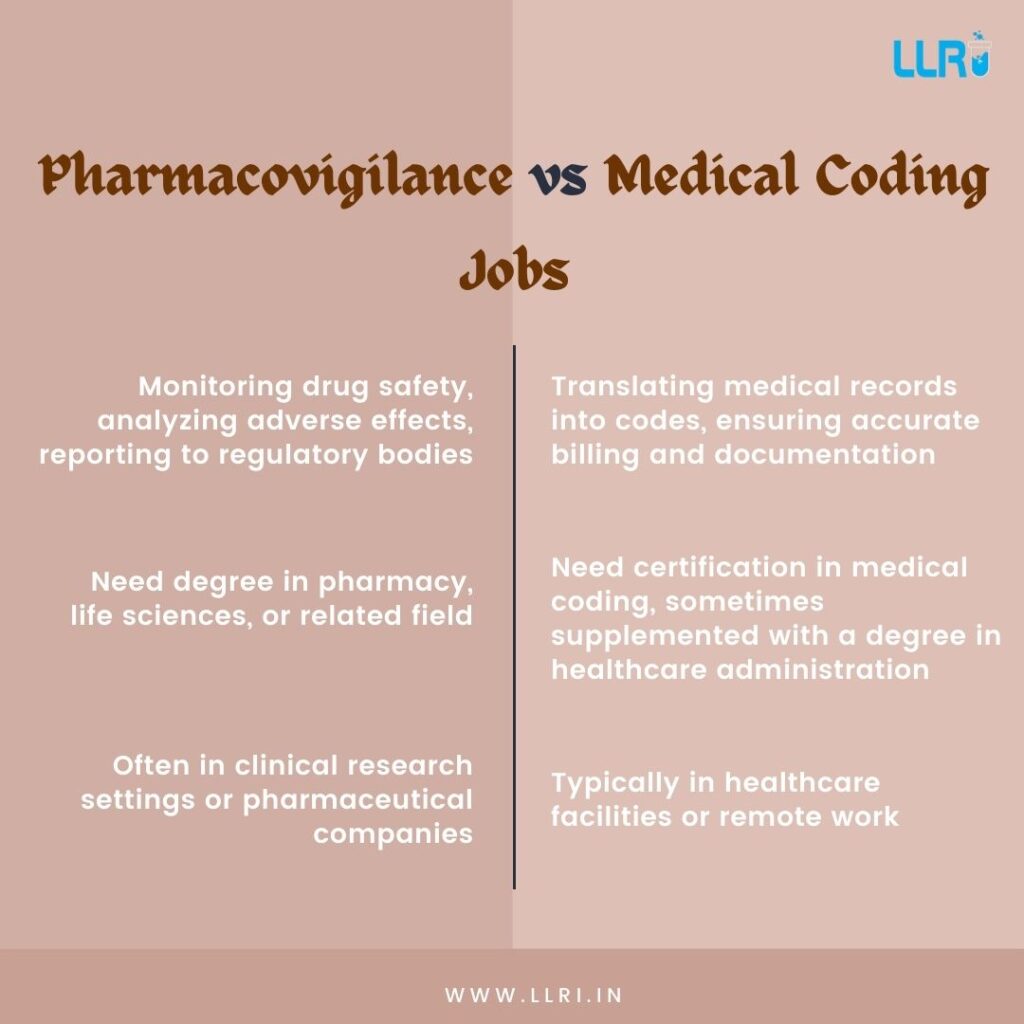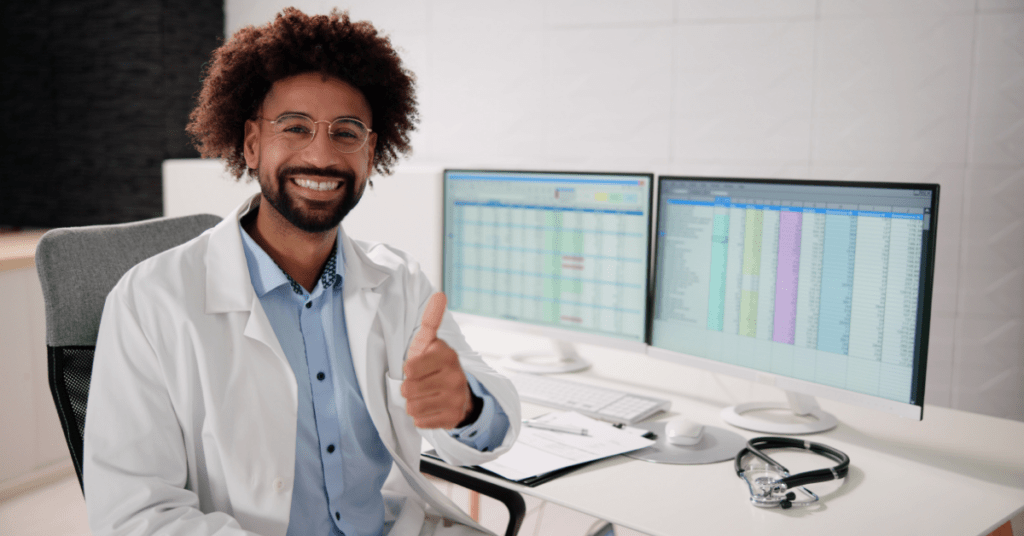Pharmacovigilance Or Medical Coding: Choosing a career path in the healthcare sector can be challenging, especially when deciding between two popular fields: pharmacovigilance and medical coding. If you’re asking, “Which is better pharmacovigilance or medical coding?” you’re not alone.
As a matter of fact, both of these fields offer unique opportunities and career growth potential, but they differ significantly in terms of responsibilities and job opportunities. Read on…
Which Is Better Pharmacovigilance Or Medical Coding?
Choosing between pharmacovigilance and medical coding depends on your career aspirations, interests, and skills. Both fields offer unique opportunities:
Pharmacovigilance focuses on the detection, assessment, and prevention of adverse drug reactions. Professionals in this field ensure that drugs are safe for public use and help in improving drug safety. This career is ideal for those interested in the clinical aspects of drugs and their effects on patients.
Medical Coding, on the other hand, involves translating medical diagnoses and procedures into universal codes. These codes are integral for billing, insurance claims, and maintaining patient records. This field suits individuals who are detail-oriented and enjoy working with data and classification systems.
For your quick understanding, here’s a comparison to understand, which is better medical coding or pharmacovigilance:
| Factors | Pharmacovigilance | Medical Coding |
| Focus | Drug safety and adverse effects | Medical record coding and billing |
| Skills Required | Analytical skills, attention to detail, knowledge of drug interactions | Strong attention to detail, understanding of coding systems, administrative skills |
| Work Environment | Pharmaceutical companies, regulatory agencies | Hospitals, clinics, insurance companies |
| Career Growth | Opportunities in research, regulatory affairs | Growth in specialized coding roles, management |
| Education Required | Degree in pharmacy, life sciences, or related field | Certification in medical coding, medical billing knowledge |

5 Important Points: Which Is Better Medical Coding Or Pharmacist?
The comparison of “which is better medical coding or pharmacist” brings a different perspective into the mix.
Point 1: Medical Coding involves a detailed-oriented job focused on accurate data management and coding. It’s ideal for those who prefer working behind the scenes with data rather than direct patient interaction.
Point 2: Pharmacist roles involve more direct patient interaction, drug dispensing, and providing medication-related advice. Pharmacists play an important role in patient care, medication management, and ensuring drug safety.
Point 3: Medical coding typically requires a certification course or diploma, which can be completed in a shorter time frame compared to a pharmacy degree. Certifications like CPC (Certified Professional Coder) are common in this field.
Point 4: Pharmacist roles requires a Bachelor’s degree in Pharmacy (BPharm) followed by a Master’s degree (MPharm) or Doctor of Pharmacy (PharmD) and licensing. This involves several years of study and practical training.
Point 5: Therefore, if you prefer a role that involves direct patient interaction and clinical decision-making, a career as a pharmacist might be more suitable. However, if you enjoy working behind the scenes to ensure accurate medical records and billing, medical coding could be a better fit.
Medical Coding vs Pharmaceutical Industry
When comparing medical coding vs. the pharmaceutical industry, it’s important to understand the background pertaining both the fields and do so accordingly.
Medical Coding is more administrative and operational. It involves ensuring that healthcare services are accurately recorded and billed. It is a critical role in the healthcare system but is primarily focused on the financial and data management aspects.
Pharmaceutical Industry careers, including pharmacovigilance, often involve more direct interaction with drug development and safety. Professionals in this industry may work on clinical trials, regulatory submissions, and drug safety analysis.
Both job fields have their unique contributions to the healthcare system. While medical coding ensures proper billing and record-keeping, the pharmaceutical industry focuses on the safety and efficacy of new drugs.

Does Medical Coding Have Scope In Future?
Yes, why wouldn’t it! Medical coding does have scope in the future. With the increasing complexity of healthcare systems and the rise of electronic health records (EHRs), the demand for skilled medical coders is expected to grow. As healthcare continues to expand globally, there will be a persistent need for professionals who can accurately code and manage medical data.
Experts point out that medical coding offers a stable career path with opportunities for specialization in various coding systems and roles. Moreover, technological advances and healthcare regulations will definitely increase the demand for skilled coders, making it a very rewarding career choice in the long term.
Conclusion: Which Is Better Pharmacovigilance Or Medical Coding?
So, “Which is better pharmacovigilance or medical coding?” Ultimately, the choice depends on your personal interests and career goals. Pharmacovigilance is ideal for those interested in drug safety and clinical research, while medical coding suits individuals who are detail-oriented and prefer working with data.
Both fields offer promising career options, and the decision should be based on what aligns better with YOUR skills and career aspirations. For those wondering if medical coding or pharmacovigilance is the right fit, it’s important to consider the nature of the work, career growth, and of course – your personal interests in healthcare -and join a reputed clinical research institute.

